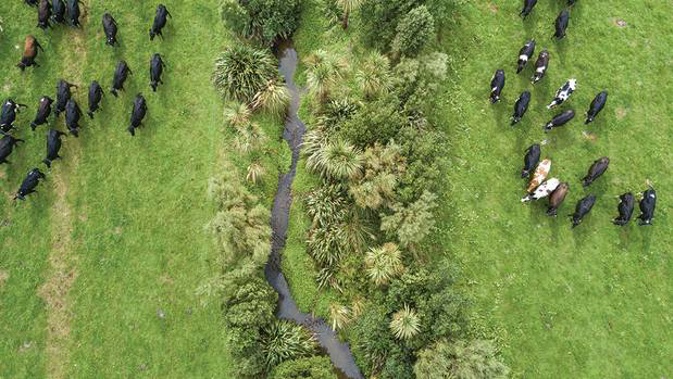
The Government will pump more than $200 million into a new programme aimed at cleaning up waterways.
Today's Budget included a $229m Sustainable Land Use Package was designed to protect and restore at-risk waterways and wetlands, and offered support for farmers to use land more sustainably.
The state of New Zealand's waterways has increasingly become a battleground environmental issue.
A major Government report out last month found that, between 2013 and 2017, about 82 per cent of the river length in pastoral farming areas wasn't safe for swimming.
Environment Minister David Parker said it was "the birthright of all New Zealanders" to pop down to their local river in summer for a swim and put their head under without getting sick.
"Today's Budget announcement turns the tide and offers support to farmers to reduce pollution getting into our waterways," he said.
"We want to ensure that farmers and growers have the tools and data they need to understand their impacts on the environment and make informed decisions.
The package also carried funding to improve water quality in at-risk catchments and wetlands.
This included support for improving consistency between councils, better compliance and enforcement, better engagement with Māori, and improving scientific knowledge to inform plan development.
"In key catchments across New Zealand, freshwater resources have been allocated in excess of environmental limits," Parker said.
Agriculture Minister Damien O'Connor said the primary sector was a "major" contributor to the economy, bringing in more than $43 billion in export revenue last year.
"This Government wants to help get more value from the primary sector, in a sustainable way that means our natural resources will be there for future generations," O'Connor said.
Another $25m, to be rolled out over four years, would support research aimed at slashing agriculture's emissions – which currently accounted for around half of New Zealand's greenhouse gas inventory.
That funding would go into the Agricultural Climate Change Research Platform, with $8.5m in 2019/20 going to the Global Research Alliance on Agricultural Greenhouse Gases.
"Ultimately, this funding will help us achieve the Government's goal of net-zero carbon emissions by 2050," Minister for Research, Science and Innovation Megan Woods said.
"It's crucial that we invest in the research now to achieve long-term change."
Elsewhere in funding focused on climate change, around $107m would be spent on work to help meet New Zealand's Paris Agreement obligations – including support for the newly-established Climate Change Commission.
"The Budget also includes funding to implement an Emissions Trading Scheme (ETS) auctioning platform," Climate Change Minister James Shaw said.
"This is welcome as having an effective ETS is a vital component of achieving a just transition."
Another $27 million would support a new energy development centre, aimed at clean and renewable energy sources, with a further $20 million over four years allocated for energy technology research.
Woods said the Taranaki-based centre would work closely with industry to test and trial technologies across a range of new energy forms such as offshore wind, hydrogen, solar, batteries, geothermal, and waste-to-energy.
Meanwhile, $4 million would be targeted at improving recycling and resource recovery, towards a goal of a zero waste economy.
The spend would build on work underway to improve the data on waste and develop mandatory product stewardship schemes for tyres, lithium batteries and refrigerants.
The new funding would help implement a national resource recovery programme in response to China's waste ban and action on single use and problem plastics.
"This funding forms part of our plan to turn around New Zealand's poor record on waste," Associate Environment Minister Eugenie Sage said.
In Sage's conservation portfolio, an extra $10.7m would help improve the Department of Conservation's security, and health and safety systems.
The initiative aimed to ensure conservation workers and volunteers were safe and secure while undertaking operations.
DoC's operating budget had climbed from $399m last year to $499m for 2019/20 - partly boosted by the new International Visitors Conservation and Tourism Levy.
Last year's DoC spend included $81.2m for Budget 2018 over four years to scale up its predator control programme.
Take your Radio, Podcasts and Music with you









